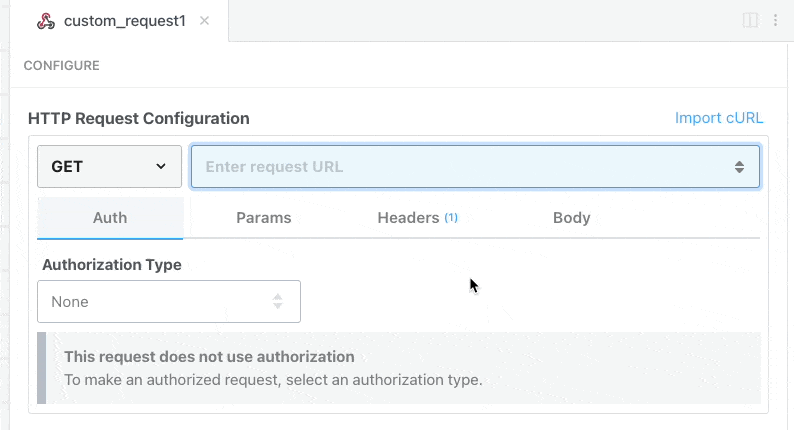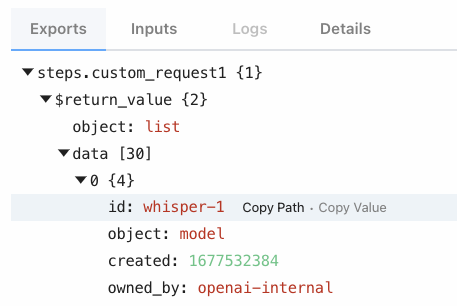What do you want to automate
with Sympla and HTTP / Webhook?
Prompt, edit and deploy AI agents that connect to Sympla, HTTP / Webhook and 3,000+ other apps in seconds.
Trusted by 1,000,000+ developers from startups to Fortune 500 companies
Popular Ways to Connect Sympla with HTTP / Webhook#
Popular Sympla and HTTP / Webhook Triggers#
Get a URL and emit the full HTTP event on every request (including headers and query parameters). You can also configure the HTTP response code, body, and more.
Get a URL and emit the HTTP body as an event on every request
Popular Sympla and HTTP / Webhook Actions#
Send an HTTP request using any method and URL. Optionally configure query string parameters, headers, and basic auth.
Send an HTTP GET request to any URL. Optionally configure query string parameters, headers and basic auth.
Send an HTTP POST request to any URL. Optionally configure query string parameters, headers and basic auth.
Send an HTTP PUT request to any URL. Optionally configure query string parameters, headers and basic auth.
Use with an HTTP trigger that uses "Return a custom response from your workflow" as its HTTP Response
Overview of Sympla#
The Sympla API allows for the seamless integration of event management capabilities into various applications or services. With this API, you can automate tasks like attendee registration, event creation, ticket sales tracking, and participant communication. It's particularly useful for event organizers looking to streamline operations and enhance the attendee experience through automation.
Connect Sympla#
import { axios } from "@pipedream/platform"
export default defineComponent({
props: {
sympla: {
type: "app",
app: "sympla",
}
},
async run({steps, $}) {
return await axios($, {
url: `https://api.sympla.com.br/public/v3/events`,
headers: {
"s_token": `${this.sympla.$auth.token}`,
},
})
},
})
Overview of HTTP / Webhook#
Build, test, and send HTTP requests without code using your Pipedream workflows. The HTTP / Webhook action is a tool to build HTTP requests with a Postman-like graphical interface.

Point and click HTTP requests
Define the target URL, HTTP verb, headers, query parameters, and payload body without writing custom code.

Focus on integrating, not authenticating
This action can also use your connected accounts with third-party APIs. Selecting an integrated app will automatically update the request’s headers to authenticate with the app properly, and even inject your token dynamically.

Pipedream integrates with thousands of APIs, but if you can’t find a Pipedream integration simply use Environment Variables in your request headers to authenticate with.
Compatible with no code actions or Node.js and Python
The HTTP/Webhook action exports HTTP response data for use in subsequent workflow steps, enabling easy data transformation, further API calls, database storage, and more.
Response data is available for both coded (Node.js, Python) and no-code steps within your workflow.

Connect HTTP / Webhook#
// To use any npm package on Pipedream, just import it
import axios from "axios"
export default defineComponent({
async run({ steps, $ }) {
const { data } = await axios({
method: "GET",
url: "https://pokeapi.co/api/v2/pokemon/charizard",
})
return data.species
},
})
Community Posts#

